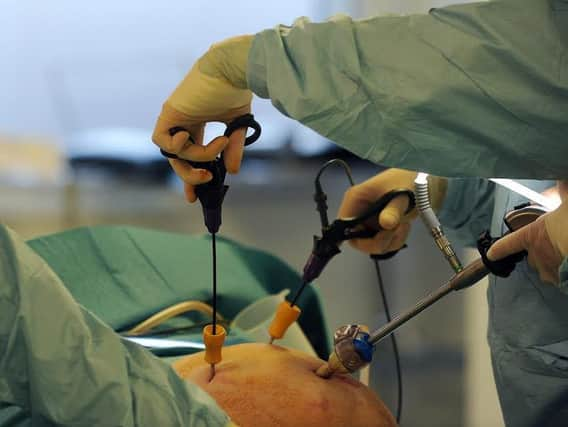Keyhole surgery firm prepares for return to work


The group has reported a short-term reduction in revenues in the current year as a result of the Covid-19 pandemic, due to the suspension of elective surgery in the UK and several other major geographical markets.
The impact was experienced from March, and aggregate revenues in the first quarter of 2020 were 25 per cent below the level achieved last year.
Advertisement
Hide AdAdvertisement
Hide AdA further reduction of 70 per cent was seen in April and Surgical said this is likely to continue in the second quarter.
The firm said it is well positioned with stable finances, broad international markets, and product ranges which are increasingly being recognised as ideally suited to the sustainability agenda and demands of a post-Covid world.
Surgical said it responded quickly to meet this challenging environment by implementing strict spending controls in order to preserve cash. Once the Government Coronavirus Job Retention Scheme was announced on March 20, an initial 50 per cent of the workforce was furloughed with effect from April 1.
In addition, the company implemented short-term salary reductions for all personnel above the furlough threshold, up to an upper limit of 50 per cent for board directors.
Advertisement
Hide AdAdvertisement
Hide AdA small manufacturing team continued to function, focusing on key products to build a three month buffer stock, enabling it to support customer requirements.
By May 1, with sufficient inventory of key products in hand, the company furloughed all but 15 per cent of its workforce, with those remaining undertaking essential operational and financial projects.